Basal cell carcinoma
Home » Conditions » Basal cell carcinoma
Award winning dermatology service, with over 20 years on experience
Short waiting lists, on some occasions offering same week appointments
Safe environment, in Care Quality Commission approved facilities
Basal Cell Carcinoma Treatments Include:
Everything you need to know.
Basal cell carcinoma as a type of non-melanoma skin cancer. Non-melanoma skin cancer is the most common form of skin cancer, with over 147,000 new cases diagnosed in the UK every year (approximately 90% of all skin cancers) and is characterised by cancer developing in the upper layers of the skin. Basal cell carcinoma forms in the cells which line the epidermis layer of the skin and accounts for around 75% to 80% of all skin cancers. Basal cell carcinoma is very unlikely to spread to other areas of the body and can be treated effectively. The earlier it is diagnosed and treated the better, as if left untreated, skin cancer can be fatal. However most people who are treated make a full recovery and are less likely to be left with scarring, so it is important to see a consultant if you suspect you may have basal cell carcinoma.
Alternative names: BCC, rodent ulcer and non-melanoma skin cancer.
WHAT CAUSES BASAL CELL CARCINOMA?
The incidence of all types of skin cancer, including basal cell carcinoma, has increased dramatically over the last few decades. As with all skin cancers, exposure to ultraviolet (UV) light in the forms of sunlight or artificial tanning is the major cause of most BCCs.
Risk factors of BCC include those with pale skin who are more likely to burn in the sun, those who have spent prolonged periods exposed to sunlight and those who have used tanning beds. If you have had BCC before, you may also be more likely to develop the condition again. Basal cell carcinoma is not hereditary, however some of the risk factors including skin type are likely to run in families. BCC affects men more than women and is more common in the elderly.
WHAT ARE THE SYMPTOMS OF BASAL CELL CARCINOMA?
Basal cell carcinomas can appear anywhere on the body, but most commonly found on areas of the body which are more frequently exposed to sunlight, including the face, head, neck and ears. There are several variants of basal cell carcinoma and in all cases, the lump may slowly get bigger, become crusty, bleed or develop into a painless ulcer:
- Superficial basal cell carcinomas appear as a red, scaly plaque and might resemble psoriasis or eczema
- Nodular basal cell carcinomas appear as a slightly shiny, pink or pearly-white translucent nodule which may ulcerate centrally and have blood vessels visible on their surface.
- Infiltrative (or morphoeic) basal cell carcinomas are less well-defined plaques and can be difficult to identify.
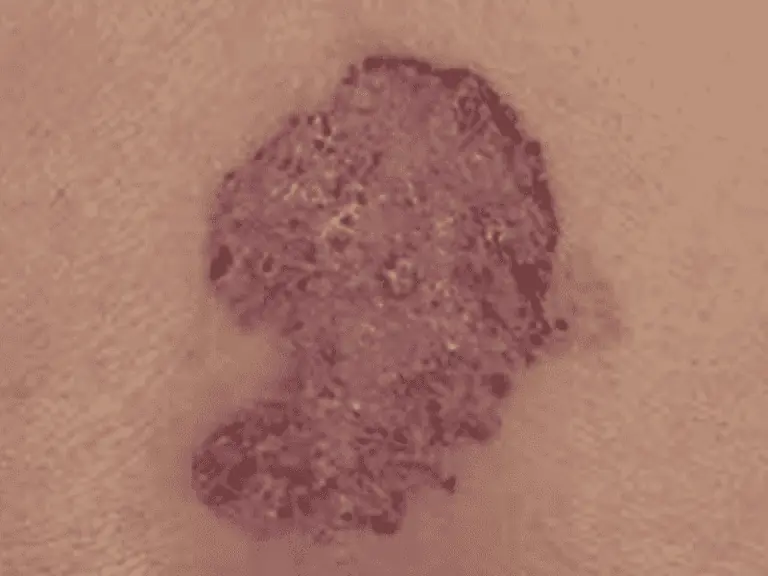
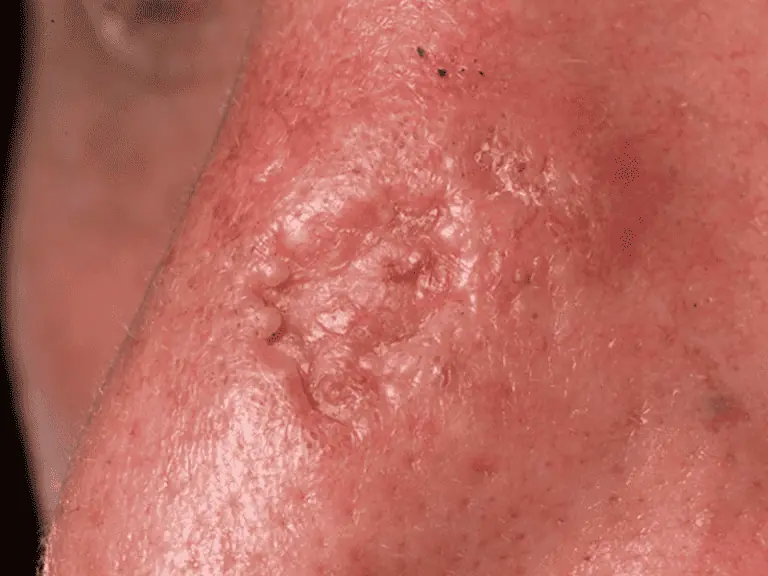
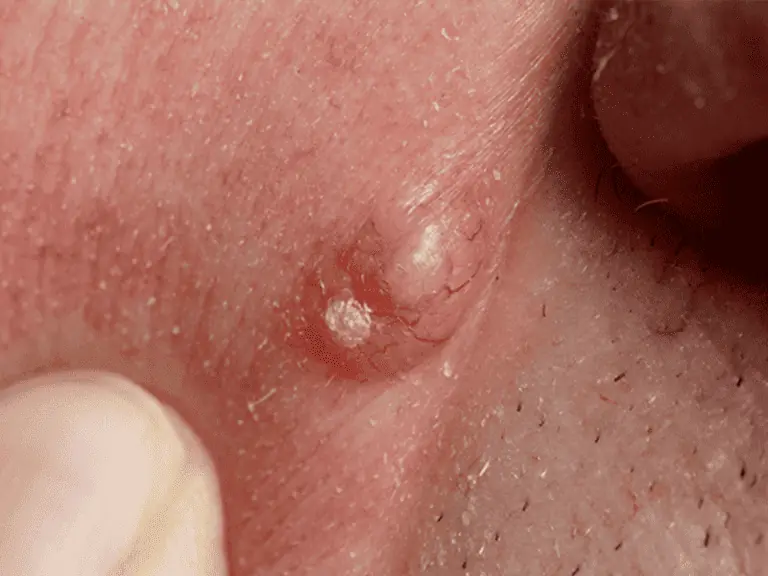
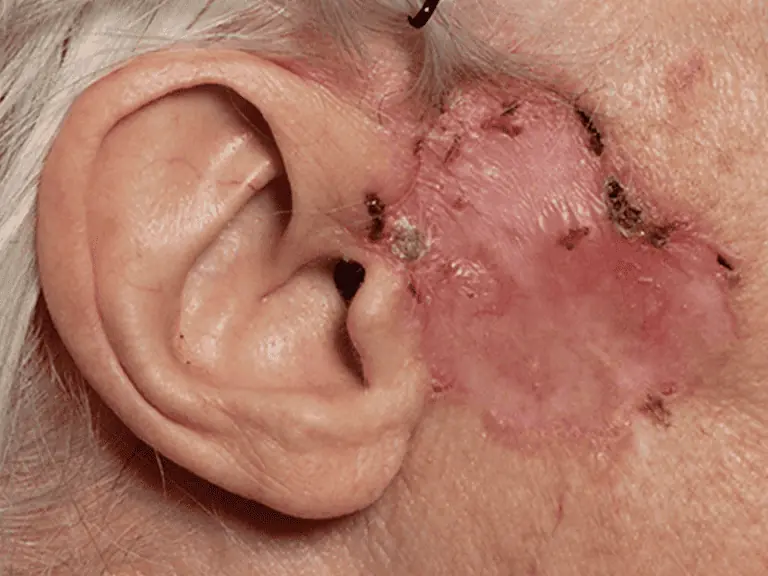
HOW CAN BASAL CELL CARCINOMA BE PREVENTED?
You can lower your chances of developing basal cell carcinoma by reducing your exposure to UV light, both in the form of sunlight and sunbeds. When out in the sun, it is important to protect the skin from sunburn by using a high factor sun cream, avoiding the sun during the hottest part of the day and covering the skin when exposed to sunlight. The earlier basal cell carcinoma is diagnosed and treated, the less likely you are to be left with scarring so checking your skin regularly for signs of skin cancer is really important. If you notice anything on your skin you are worried about, see a consultant dermatologist who will assess your lesion and can carry out treatment if required.
basal cell carcinoma treatment Options
Basal cell carcinomas can be treated in a variety of ways depending on the type, location and severity. Nodular and infiltrative BCCs are most commonly treated with surgery or radiotherapy. Surgical excision works by cutting the cancer away from the skin, ensuring no cancerous cells are left behind. The skin can usually be closed with a few stitches or a skin graft depending the size of the lesion. Superficial BCCs are often treated using a freezing spray, topical creams or photodynamic therapy.
FREQUENTLY ASKED QUESTIONS
IS SKIN CANCER HEREDITARY?
Skin cancer is not hereditary in the sense that it is passed down through a gene. However, skin type does run in families so those more likely to develop skin cancer are often in the same family.
WHO IS MOST AT RISK OF GETTING SKIN CANCER?
Men are more likely than women to develop skin cancer and it is more common in the elderly.
WHAT FACTOR SUNSCREEN SHOULD I USE?
It is recommended to use a high factor of sunscreen no matter your skin type. SPF30 with a 4-star UVA rating during the summer is recommended for those with paler skin to stop burning but also to help prevent wrinkles and sunspots in those who don’t burn as easily.
DO SUNBEDS CAUSE SKIN CANCER?
Research shows sun beds are a significant risk factor in skin cancer.
HOW CAN I PREVENT SKIN CANCER?
Protecting your skin is, of course, always the best course of action. The easiest ways you can do this include:
· Wearing a waterproof, high level of SPF protection when in the sun
· Use a daily moisturiser with SPF protection
· Avoid the sun when it is at its strongest during the day
· Wear a hat when in the sun
· Sit in the shade
WHAT IF I'VE HAD BCC BEFORE?
If you’ve had a BCC in the past, there’s a chance the condition may return.
The chance of non-melanoma skin cancer returning is increased if your previous cancer was large in size and high grade (severe). It’s also important to be aware that if you’ve had a BCC, your risk of developing another one in the future is increased because these cancers are often multiple. This means it’s important to regularly examine your skin to check for new tumours.
REQUEST A CALL BACK
Please fill in this form and one of our team will give you a call back to arrange a consultation with one of our expert dermatologists.
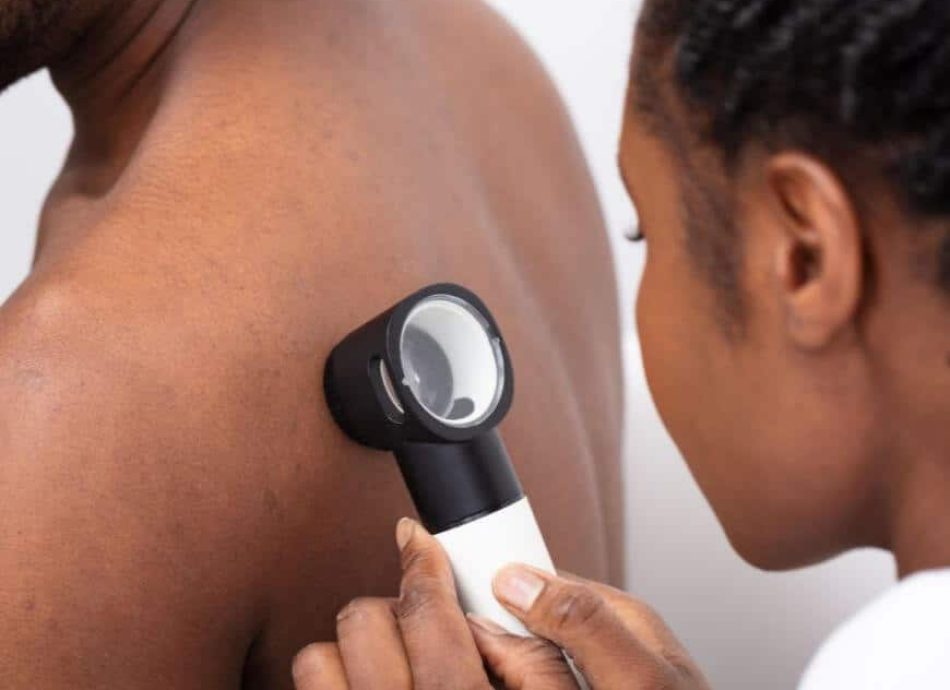
HEAR FROM OUR PATIENTS
WHY Choose basal cell carcinoma treatment from STRATUM DERMATOLOGY CLINICS?
Skin cancer is the most common form of cancer in the UK, with over 400 people being diagnosed every day. Early detection of skin cancer, through examination and regular monitoring of moles, saves lives and if caught and treated early enough there is a 100% chance of survival. Our professional team of dedicated cancer specialists can provide you with the reassurance of a correct diagnosis.
We work with leading experts in the field of dermatology to ensure you have the best experience and treatment. Stratum Dermatology Clinics are regulated by the Care Quality Commission, are part of the British Association of Dermatologists and are top rated by patients on Doctify so you can assure safe and effective actinic keratosis treatment with us.
skin cancer INSIGHTS AND ADVICE

When Should I Worry About A Mole
WHEN SHOULD I WORRY ABOUT A MOLE? A mole is a coloured spot on the skin which is made up of a cluster of cells known as melanocytes which are responsible for producing the pigment in your skin. Sometimes these melanocytes grow in a cluster

What are the common types of skin cancer?
WHAT ARE THE COMMON TYPES OF SKIN CANCER? There are three main types of skin cancer, basal cell carcinoma (BCC), squamous cell carcinoma (SCC) and melanoma. The first two are both known as non-melanoma skin cancer and are the most common varieties. Non-melanoma skin cancer
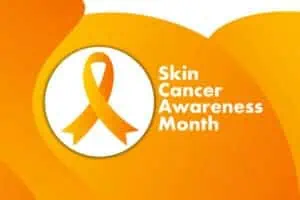
Skin Cancer Awareness Month
Skin cancer awareness month takes place every May with the aim of raising awareness of the dangers of unprotected sun exposure and educating on the ways skin cancer can be prevented. During skin cancer awareness month, the British Association of Dermatologists (BAD) also runs a